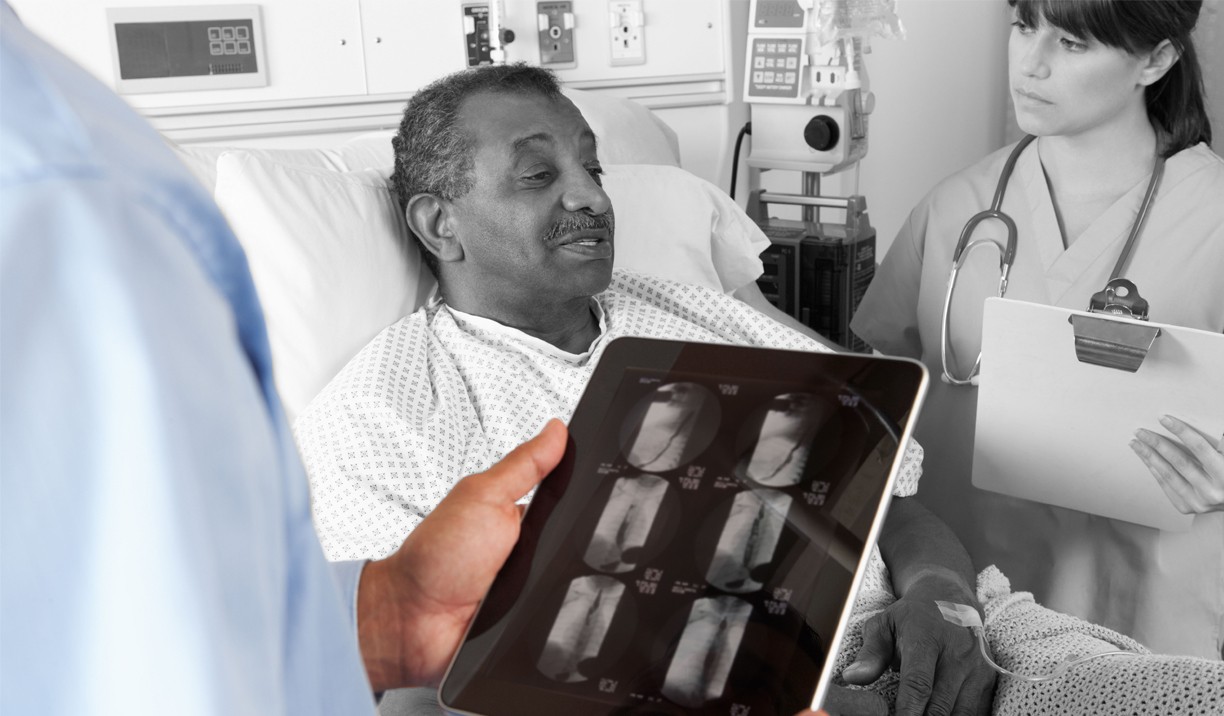It is an indisputable fact that information technology is revolutionizing healthcare. An explosion of mobile applications (mHealth) is enabling patients to use their smartphones to monitor their chronic conditions and connect with their physicians.
Blood pressure, cardiac monitoring, and blood glucose monitoring are early entrants in the world of mHealth. As an enabler, IT is helping to care for patients in their home versus the hospital, providing real – time information that physicians can monitor and react to immediately.
The implications are fantastic and seemingly once relegated to the world of science fiction. For instance, Proteus, a digital health company, recently received FDA approval to manufacture pills with edible electronic sensors. An online mHealth app receives data transmitted by the sensors, enabling physicians to track a patient’s medication compliance. This technology addresses the costly problem of medication noncompliance, estimated to cost the U.S. healthcare system alone as much as $290 billion.
A report published by research2guidance predicts that by 2017, the mHealth market will reach billions of people around the globe via their smartphones and tablets. Research and Markets, an international market research firm, (tweet this!) estimates the current value of the global mHealth apps market at $6.6 billion, growing to $20.7 billion by 2018. The mHealth apps market in the United States was estimated to be valued at $2.9 billion in 2013.
The report predicts the highest growth will occur in diabetes management devices due to the increasing global burden of the disease. The proliferation of apps related to diabetes validates the prediction. OnTrack for Android smartphones allows diabetics to track blood glucose highs and lows, food intake, medications, blood pressure, pulse, exercise, and weight all in one place. SiDiary captures, stores, and analyzes relevant data for use in diabetic therapy. The Diabetes Diet app contains hundreds of healthy recipes. A recent clinical trial conducted by WellDoc demonstrated that combining patient behavioral coaching via mobile applications with blood glucose data, lifestyle behaviors, and patient self-management data substantially reduces glycated hemoglobin levels over one year.
The Food and Drug Administration projects that the mobile app market will grow by 25 percent annually for the near future with companies investing record amounts in developing new health apps. Consumers will find more and more options from which to choose. (Tweet this!) There are more than 40,000 health apps currently on iTunes, including calorie counters, prescription reminders, and physician and hospital locators.
As of September 2013, the FDA had cleared nearly 100 mobile medical apps including blood pressure monitors, apps that send real-time readings of electrocardiographs to physicians, and apps that access vital signs for use in emergency cardiac care.
“Mobile apps are unleashing amazing creativity, and we intend to encourage these exciting innovations,” says Bakul Patel, M.S.,MBA, senior policy advisor to the director of FDA’s Center for Devices and Radiological Health. “At the same time, we have set risk-based priorities and are focusing the FDA’s oversight on mobile apps that are devices for which safety and effectiveness are critical.”
Physicians also are embracing mobile technology via their tablets to access a variety of data including EMR information and drug reference facts. A 2012 survey by InformationWeek asked IT teams which mobile computing devices physicians in their organization were using for medical purposes, (tweet this!) and more than two-thirds, 66 percent, reported iPads or other tablets — a 21 percent increase in just 12 months.
The expansion of mHealth also promises to address a looming physician shortage by enabling physicians to monitor large numbers of patients remotely, respond to their questions quickly, and make better, more informed decisions about their care. In a recent TED Talk, Eric Dishman, director of proactive health research at Intel Corporation, said the current healthcare system “must change”, and it’s up to individuals to wake up and take control of their health. Dishman’s vision is one where patients will no longer be tethered to a central location for care. They will be able to take an active role in their own well-being. Information technology will facilitate care coordination among a team of caregivers, eliminating the all-too-common practice of disparate specialists prescribing duplicative or contraindicated drugs to patients, often resulting in costly hospital admissions.
“Information technology has moved from a position of dread to a position of desire,” says David Muntz, former principal deputy director of the Office of the National Coordinator on Health Information Technology. “Healthcare really wants technology now, and I see that as a real sea change,” he says. The government has been using a stimulus program effectively in combination with policy to encourage healthcare organizations to adopt technologies that are interoperable. This will revolutionize healthcare because it will enable people to go where they want to go, without duplication, and they will be able to access all points along the continuum of care.”
Dishman also advocates using information technology to accelerate care customization. The ability to map individuals’ entire genetic makeup will allow healthcare providers to build specific predictive models that will eliminate the costly guesswork that often plagues today’s system and replace it with targeted therapies that will improve effectiveness and reduce costs.
Muntz seems to concur, adding “Information technology is unlike any other resource available in healthcare. It allows you to hardwire processes that you can’t control and assure outcomes,” he says. “Health information technology helps create better avenues and opportunities for communication, coordination, and collaboration.”






